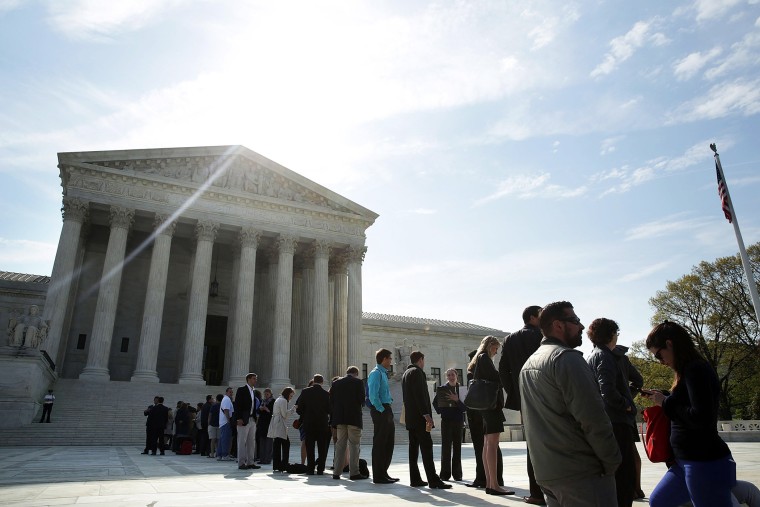The Supreme Court ruled unanimously Monday that an anti-abortion group could challenge an Ohio law barring knowingly false statements in political campaigns.
"Petitioners have alleged a credible threat of enforcement," Justice Clarence Thomas wrote. "When an individual is subject to such a threat, an actual arrest, prosecution, or other enforcement action is not a prerequisite to challenging the law."
The decision clears the way for Susan B. Anthony List, a group that opposes abortion, to preemptively challenge an Ohio law barring knowingly false speech in political campaigns. During the 2010, election, the group attempted to purchase a billboard accusing pro-life Ohio Democratic Rep. Steven Driehaus of voting for "taxpayer funded abortion" when he supported the Affordable Care Act. Federal funds for abortions have been barred since the 1970s, but conservatives have embraced a definition of "abortion" that includes contraceptives that prevent pregnancy and contend that tax breaks to help Americans purchase health insurance amount to funding abortion.
Driehaus, like so many other Democrats, was wiped out in the Republican takeover of Congress in 2010, so the complaint was ultimately withdrawn. But because the Ohio Elections Commission found there was "probable cause" to believe that Susan B. Anthony List had run afoul of the law, and because the group plans to run similar ads in the future, the law violates their First Amendment rights.
The case was comically lopsided from the beginning -- not a single amicus brief was filed on behalf of the state of Ohio, and even liberal groups conceded that allowing the state to arbitrate truth or falsity in political campaigns was troubling. During oral argument, the Justices seemed profoundly skeptical of the law's underlying constitutionality.
"The mere fact that a private individual can chill somebody’s speech does not say, well, since a private individual can do it, you know, the ministry of truth can do it,” Justice Antonin Scalia said during oral argument in April.
The "ministry of truth," or "minitrue," is the propaganda agency for the totalitarian government in George Orwell's science fiction novel "1984."
Scalia was taking a cue from Susan B Anthony List's attorney Michael Carvin, who had summarized the group's challenge to the law by saying, "Our constitutional claim here is the ministry of truth has no ability to judge our political speech as falsity."
